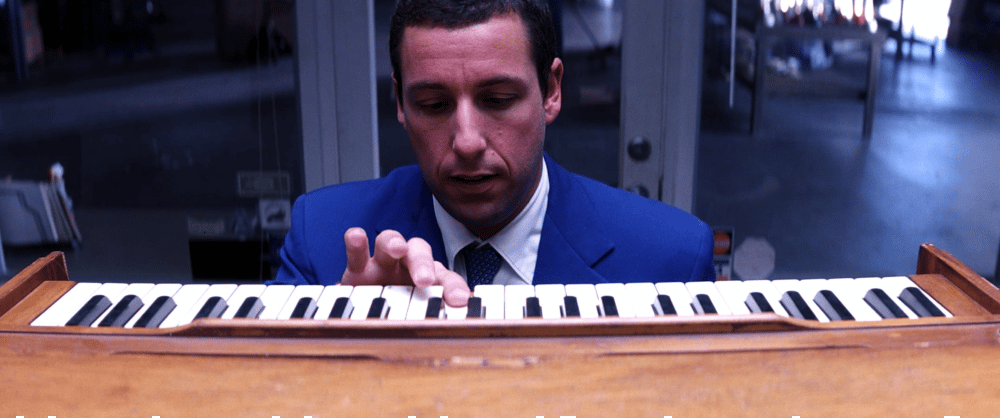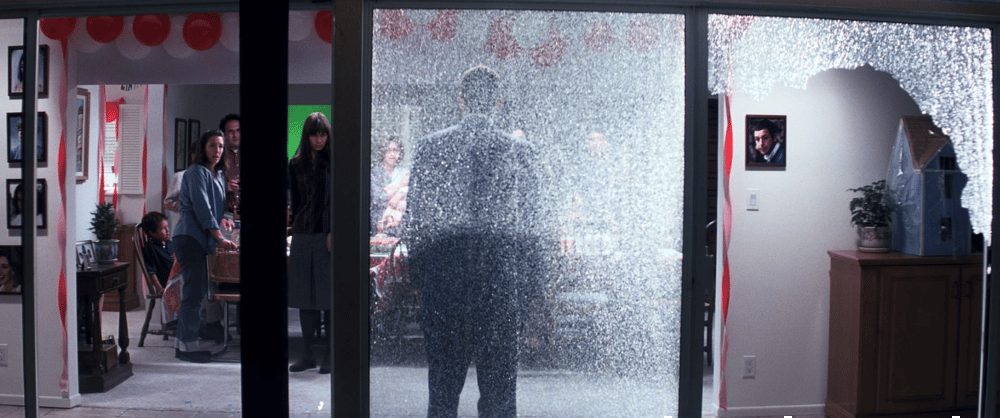Before he passed away at the age of 46, Philip Seymour Hoffman starred in 52 feature films. Starring roles, character pieces, chameleon work—he left a legacy nearly unmatched in both quality and quantity. Now, with P.S.H. I Love You, Jonah Koslofsky wafts through the cornucopia of the man’s offerings.
I’m doing pretty good, I think, as a start. I wish I was making more, doing a little bit better, but I can’t get over a certain hump – I will. I’ll crack something very soon, I think, and then really do better.
barry egan (adam Sandler)
The turn of the century also marked a turn for Paul Thomas Anderson. As he was wrapping up press for his sprawling opus Magnolia, the 29-year-old writer/director told The Guardian two crucial tidbits about his next project: his next movie would be just 90 minutes, and it would star Adam Sandler.
A man of his word (at least in this case), Anderson’s Punch-Drunk Love is a marvelous anomaly. That said, it’s not one of the P.T.A. movies I most enjoy. Pivoting away from the ensemble excesses of Boogie Nights and Magnolia, we’re plugged into a single perspective, that of Sandler’s Barry Egan. He’s a repressed toilet plunger salesman who feels bullied by his half-dozen sisters and toils endlessly in an empty, San Fernando warehouse.

In his most layered performance to date, the former Waterboy and Wedding Singer sheds most of his usual, goofy screen presence to reveal a nervous, angry man. Punch-Drunk Love wrings tragedy – without very much comedy – out of Barry’s exasperation and inability to fit in. Sandler’s wonderful work is complemented and bolstered by a slew of expressionist choices, including Jon Brion’s sweet, rhythmic score and Anderson’s hyper-intentional use of muted reds, whites, and blues – until Barry’s monotony is broken by a trip to Hawaii and a blossoming new love.
But is Barry ready for a relationship? He tells the woman on the other end of a phone sex line, not his eventual girlfriend Lena (Emily Watson), that he wants to “really do better.” Of course, there’s nothing wrong with making one of these calls, but “Georgia Peach” can sense the shame and discomfort Barry’s carrying. She calls back in the morning, asking – demanding – more money; when Barry won’t play ball, so she turns to her manager (Philip Seymour Hoffman). Better known as “The Mattress Man,” Dean Trumbell is a skeevy asshole who operates out of Provo, Utah. In Barry, he sees an opportunity to extort an easy buck.
In his time on-screen, Hoffman makes an excellent foil for Sandler.
Because Punch-Drunk Love finds Anderson at his most focused at this stage of his career, he restrains any urges to delve into the world of the Mattress Man. I’m sure, in a more expansive version of Punch-Drunk Love, P.T.A. and P.S.H. could’ve probed the depths of Dean Trumbell’s psychology and found pathos in his ridiculous existence. But what does that have to do with Barry? It’s a logical choice, but Hoffman’s part in PDL isn’t much more than a cameo, memorable yet minimal.
At the Cannes press conference following the film’s premiere, Hoffman said, “My job in this story… Paul didn’t say this, but I’m the nightmare in the dream. I’m his worst fear. And he needs to be able to overcome me before he’s able to be with Emily” In his time on-screen, Hoffman makes an excellent foil for Sandler. His Hard Eight hairdo is back, and his attitude is instantly apparent: he’s a childish guy who will yell and scream to get his way. He doesn’t have much to back up his posturing, but that posturing has been enough to carve out a little corner of the world, south of Salt Lake City.
One of Barry’s issues is that he lacks an outlet for his rage – it’s all bottled up until a glass door gets in his way. Unleashing his anger on the Mattress Man may not be a sustainable solution, but in the short term, he’s as good a target as any. When the pair first speak over the phone, Hoffman fires out a volley of “shut ups!” – in the process, he spins another small role into gold. It’s such an explosion of hand gestures and staccato repetition that it seems completely impulsive. How could a reaction like this have been planned and rehearsed?

Still, eventually, Barry triumphs. He stares down Trumbell and beats him at his own game: the Mattress Man says “that’s that” and backs down. Call me immature, but I prefer the gonzo, go-for-broke sensibility of Magnolia, with Anderson overloading on idiosyncrasies, his sheer scope forcing the viewer into his heightened reality. Punch-Drunk Love may be a leaner movie, but as a result, its quirks seem… quirkier. A mysterious small piano and a scheme to steal frequent flier miles are both a little bit too clever, at least for me. On the other hand, when this movie is content being sweet, it’s delicious.
This may be P.T.A. and P.S.H.’s least successful pairing, but it’s still great fun. During that same Cannes press conference, Hoffman was asked by a breathless film student why he and Anderson collaborated so often. Hoffman replied, in a sort of exasperated manner, “Really, it’s more about friendship and comradery and liking having someone around when you’re working, because it’s not easy.”
He continued, “You want to be able to trust the people you’re with when you’re working, because you get pretty personal. And sometimes you lose your cool, and you want to know when you turn around, you’ll see Paul, or Paul will see me. It’s a very warming feeling. And that’s why I’ll just work with Paul, whenever, and him with me, and I’m sure it’ll be like until one of us isn’t here anymore.” Unfortunately, the pair would only work together one more time.